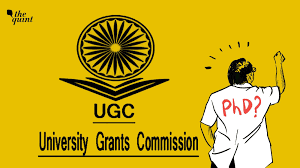PU to bridge industry-academia gap with ‘prof of practice’ post
Kenfra Research2023-09-19T12:46:46+05:30PU to bridge industry-academia gap with ‘prof of practice’ post:
Professor of Practice:
It is a specialized position within academia that differs from traditional tenure-track or research-focused faculty roles. The title “professor of practice” is typically used to designate individuals who are appointed based on their extensive practical experience and expertise in a particular field or profession. Here are some key characteristics and aspects of a “professor of practice” position
- Practical Expertise: Professors of practice are hired based on their extensive professional experience and expertise in a particular field or industry. They are not traditional academics but professionals who have excelled in their respective careers.
Teaching and Instruction: One of the primary responsibilities of a professor of practice is to teach courses related to their area of expertise. They often provide practical insights, real-world examples, and hands-on experiences to students. Their teaching style is focused on applying theory to practical situations.
Mentorship: Professors of practice frequently serve as mentors to students, helping them navigate their academic and career paths. They can offer guidance on internships, job opportunities, and industry-specific skills development.
Curriculum Development: They may play a role in developing and updating the curriculum to ensure that it aligns with industry trends and standards. This can involve creating new courses or revising existing ones.
Research and Innovation: While their primary role is not research-oriented, some professors of practice engage in applied research or collaborative projects with industry partners. This research often addresses practical challenges and contributes to solving real-world problems.


6. Industry Connections: Professors of practice maintain strong ties to the industry and can facilitate partnerships, internships, and job placements for students. Their industry connections are valuable assets for both students and the institution.
7. Guest Lectures and Workshops: They may organize or participate in guest lectures, workshops, or seminars that bring industry professionals into the classroom. These events provide students with exposure to current industry practices and trends.
8. Professional Development: Professors of practice often continue to work in their respective fields while teaching, which allows them to stay up-to-date with industry developments and maintain their practical skills.
9. Unique Titles: The specific title of “professor of practice” may vary between institutions. Some may use titles like “clinical professor,” “adjunct professor of practice,” or similar variations, depending on their academic policies.
10. Diverse Fields: Professors of practice can be found in various fields, including business, law, healthcare, engineering, the arts, and more. The goal is to bring real-world expertise into academic programs in a wide range of disciplines.
PU to bridge industry-academia gap with ‘prof of practice’ post:
The term “professor of practice” or “professor of the practice” is a title commonly used in academia to denote faculty members who bring practical, real-world experience to their teaching and research roles. These individuals are often hired from industry or other professional fields to bridge the gap between academia and the practical application of knowledge. Here’s how the concept of a “professor of practice” can help bridge the industry-academia gap.
Real-world expertise: Professors of Practice bring practical, up-to-date knowledge and skills from their industry experience to the classroom. This helps students learn about current industry trends, challenges, and best practices.
Industry connections: PoPs often have extensive networks in the industry, which can benefit both students and the academic institution. They can facilitate internships, job placements, and research collaborations with industry partners.
Relevant curriculum: With their industry insights, PoPs can help design and update curriculum to ensure that students are learning the most relevant and applicable skills for their future careers.
Mentorship and guidance: PoPs can serve as valuable mentors to students, providing guidance on career paths, job market expectations, and practical advice for success in their chosen field.


5. Research collaboration: While PoPs are primarily focused on teaching and mentoring, they can also engage in research activities that bridge the gap between theoretical knowledge and practical application.
6. Filling faculty gaps: In some cases, universities may face challenges in recruiting traditional academic faculty with industry experience. PoPs can fill these gaps and enhance the overall quality of education.
7. Industry credibility: Having PoPs on staff can enhance the credibility of academic programs, making them more attractive to prospective students and industry partners.
8. Enhancing competitiveness: By offering students a unique blend of academic and practical knowledge, universities can produce graduates who are better prepared to compete in the job market.
Overall, the “Professor of Practice” role is a valuable strategy for universities and colleges to better prepare students for the demands of the real world and strengthen their ties with industry. It’s an approach that benefits both students and the institutions themselves by fostering a more dynamic and relevant learning environment.









Leave a Reply